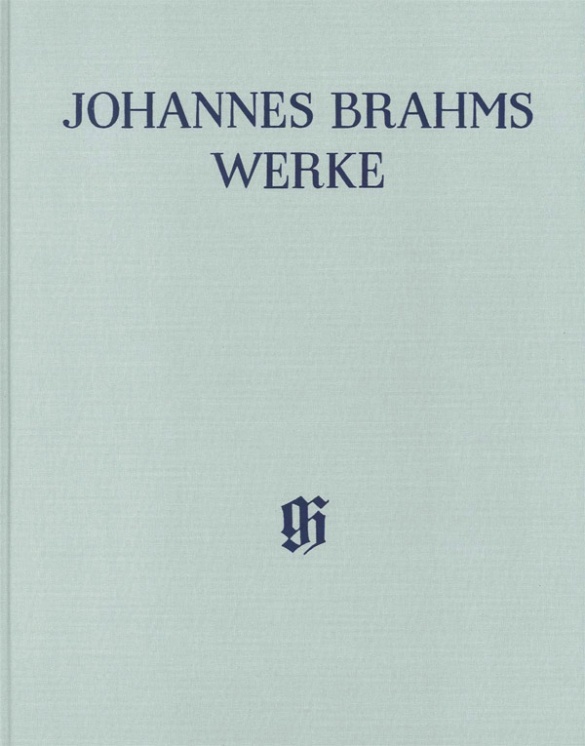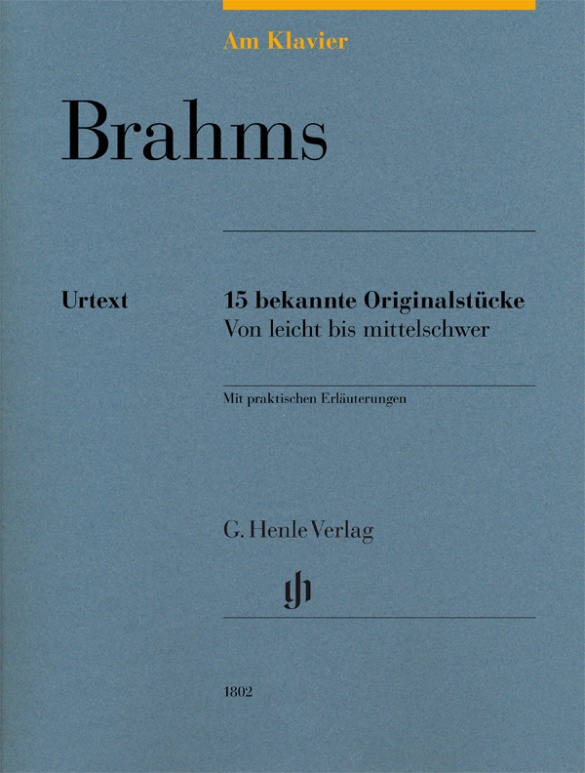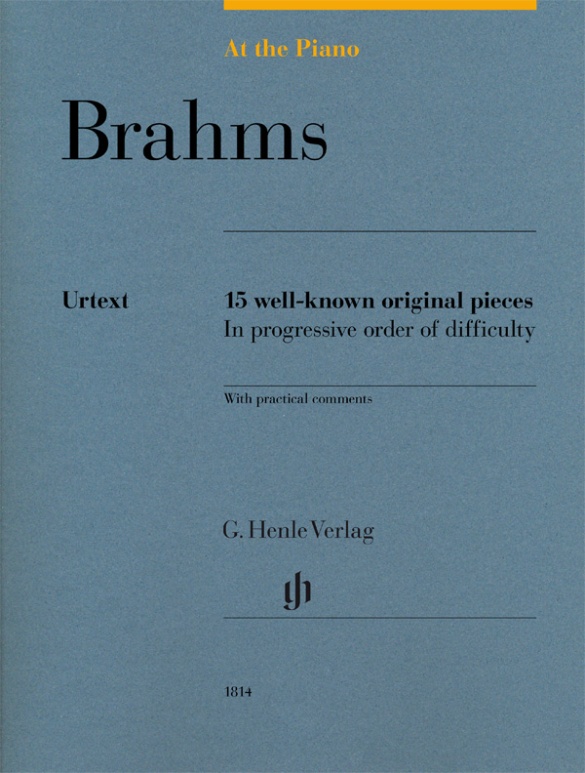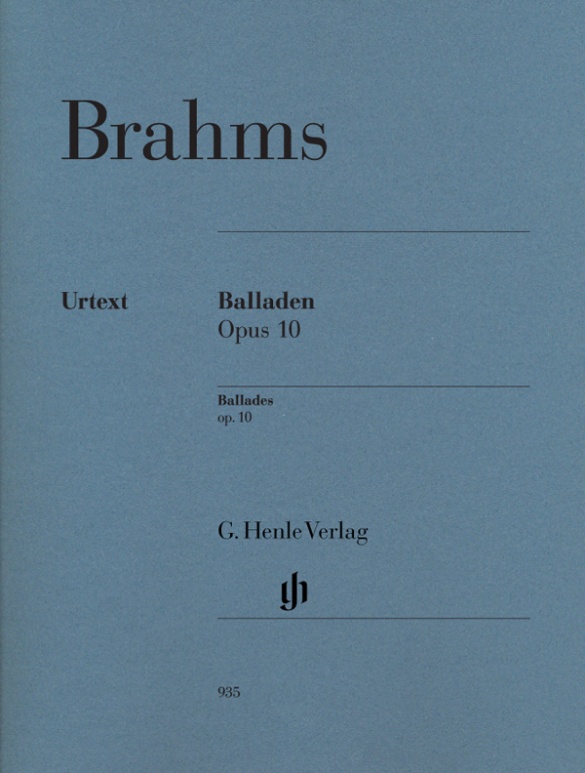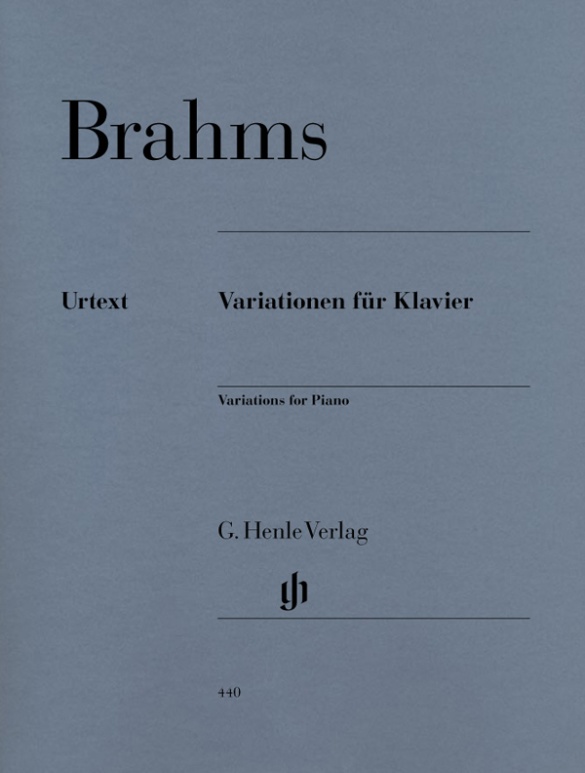Johannes Brahms
Ser. 3, Vol. 6 | Piano Pieces
Audio example: Andreas Boyde: op. 4, Oehms Classics OC 584
Content/Details
About the Composer

Johannes Brahms
His significant output comprises chamber music, piano works, numerous choral compositions and songs (including settings of folk-song lyrics), as well as large-scale orchestral works in the 1870s and 1880s. His compositions are characterized by the process of developing variation. He is considered an antithesis to the New German School around Liszt, and an advocate of “absolute” music.
| 1833 | Born in Hamburg on May 7, the son of a musician. His first piano instruction with Willibald Cossel at age seven, then with Eduard Marxen; first public performances from 1843. |
| 1853 | Concert tour through German cities; he meets Schumann, who announces him as the next great composer in his essay “Neue Bahnen” (“New Paths”). A lifelong, intimate friendship develops with Clara Schumann. |
| 1854–57 | Piano Concerto No. 1 in D minor, Op. 15. |
| 1857–59 | Choir director, pianist, and teacher at the royal court in Detmold. |
| 1859–61 | Director of the Hamburg Women’s Choir. |
| 1860 | Manifesto against the New Germans around Liszt. |
| 1863 | Cantata “Rinaldo,” Op. 50. |
| 1863–64 | Director of the Wiener Singakademie. |
| 1868 | Partial performance in Vienna of “A German Requiem,” Op. 45 (the complete work premiered in Leipzig in 1869) |
| 1871–74 | Artistic director of the Gesellschaft der Musikfreunde (Society of Friends of Music) in Vienna. |
| 1873 | Haydn Variations, Op. 56a, for orchestra. |
| from 1877 | His symphonic output begins with the Symphony No. 1 in C minor, Op. 68 (begun 1862); composition of the Symphony No. 2 in D major, Op. 73; the Symphony No. 3 in F major, Op. 90 (1883); and Symphony No. 4 in E minor, Op. 98 (1884–85): cantabile themes, chamber-music-like style. |
| from 1878 | Travels in Italy. |
| 1878 | Violin Concerto in D major, Op. 77, for Joseph Joachim. |
| 1881 | Piano Concerto No. 2 in B-flat major, Op. 83, with a scherzo movement. |
| 1886 | Honorary president of Vienna’s Tonkünstlerverein (Association of Musicians). |
| 1897 | Four Serious Songs, Op. 121. Dies in Vienna on April 3. |
Product Safety Informations (GPSR)

G. Henle Verlag
Here you can find the information about the manufacturer of the product.G. Henle Verlag e.K.
Forstenrieder Allee 122
81476 München
Germany
info@henle.de
www.henle.com
Die Mitarbeiter der Brahms-Gesamtausgabe darf man sich wohl als glückliche Menschen vorstellen. Selten hat eine Musikergesamtausgabe ein solch positives Echo hervorgerufen, selten wurde ein solch schwergewichtiges Editionsvorhaben mit solcher Hingabe, ja solchem Fleiß erarbeitet. Es ist sicherlich nicht übertrieben zu sagen, dass man jedem Band dieser prachtvollen Ausgabe anmerkt, mit welcher Begeisterung sich alle Beteiligten in den Dienst der großen Sache stellen. (...) Mit der Herausgabe der Klavierstücke von Brahms hat Katrin Eich nun eine imposante Meisterleistung vollbracht, die größten Respekt abverlangt und einer erneuten Dissertation gleichkommt. (...) Wie zuvor schon bei anderen Bänden stammt der exzellente Computer-Notensatz wieder von Michael Zimmermann.
Die Tonkunst, 2013recommendations
autogenerated_cross_selling
Further editions of this title
Further editions of this title


